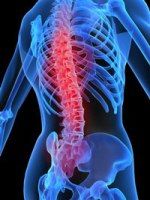Duloxetine significantly reduced osteoarthritis knee pain in new study
Patients on treatment also experienced improved physical functioning
Advertisement
In a new study, duloxetine hydrochloride (Cymbalta®), administered at 60 mg to 120 mg taken once daily, reduced pain severity significantly, compared with placebo, in patients with osteoarthritis pain of the knee. Data from the 13-week randomized, double-blind, placebo-controlled clinical trial 1 were presented at the annual meeting of the American Academy of Pain Medicine (AAPM) in Honolulu, Hawaii.
Duloxetine-treated patients showed greater reductions from baseline on the primary endpoint, the 24-hour average pain score on the Brief Pain Inventory (BPI), compared with placebo-treated patients. In the study, 65 percent of duloxetine-treated patients experienced a clinically significant (at least 30 percent) improvement in pain, compared with 44 percent of placebo-treated patients.
The duloxetine-treated patients also showed improved physical function, compared with placebo, as measured by the Western Ontario and McMaster Osteoarthritis Index (WOMAC). In this study, patients on duloxetine did not show statistically significant improvements on the WOMAC pain and stiffness subscales compared with placebo.
“With an aging population, the number of people with osteoarthritis of the knee is expected to rise,” said Jacques P. Brown, M.D., of the Rheumatology and Bone Diseases Research Group in Quebec City, Canada. “This condition can have a real impact on a person’s life, limiting functionality and ability to perform day-to-day activities.”
In November 2002, Eli Lilly and Company and Boehringer Ingelheim signed a long-term agreement to jointly develop and commercialize duloxetine hydrochloride. This partnership covers neuroscience indications in most countries outside of the United States and Japan, with few exceptions.






















































